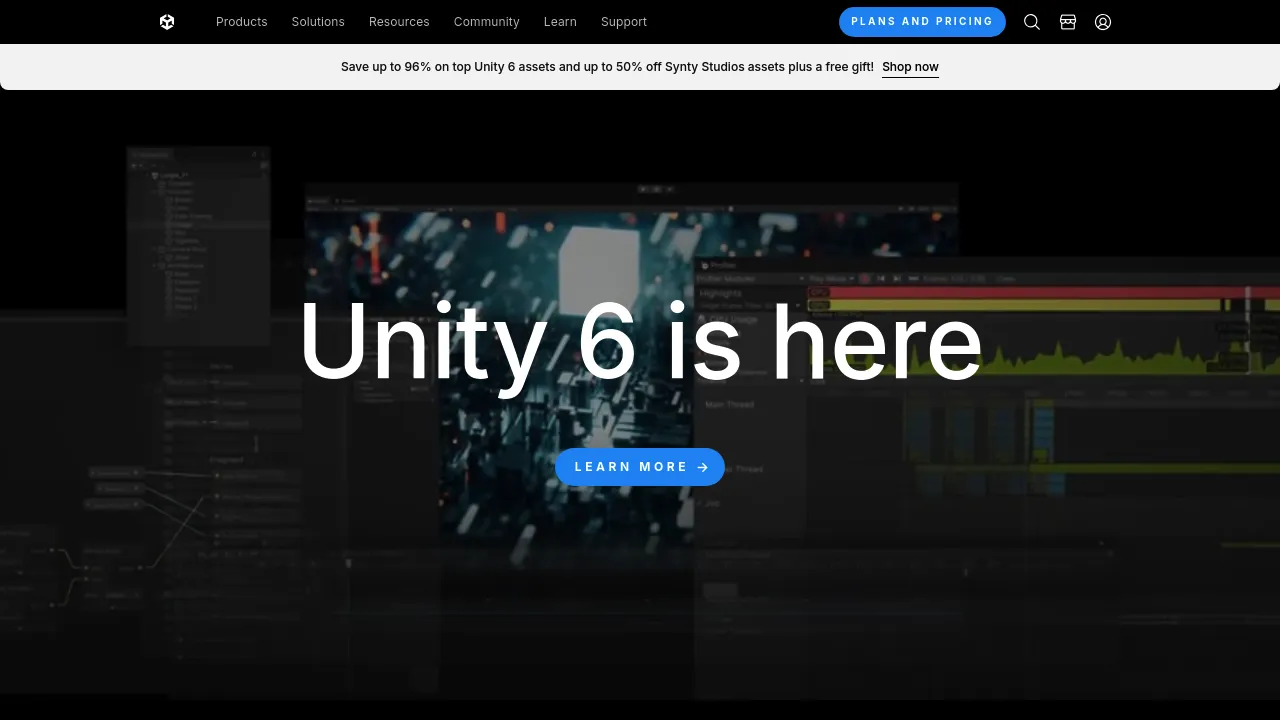What is Unity?
Unity is a versatile game engine that enables developers to create 2D and 3D games and experiences. It offers a comprehensive set of tools and a large community, making it a popular choice for indie developers and large studios alike.

Unity is a versatile game engine that enables developers to create 2D and 3D games and experiences. It offers a comprehensive set of tools and a large community, making it a popular choice for indie developers and large studios alike.
Cross-Platform Development: Build games for PC, consoles, mobile devices, AR/VR platforms, and more.
User-Friendly Editor: Design scenes, interfaces, and animations with an intuitive editor.
Scripting: Write game logic using C# with a robust API.
Asset Store: Access a vast marketplace of assets, plugins, and tools.
Graphics Rendering: Utilize advanced rendering capabilities for high-quality visuals.
Physics Engine: Implement realistic physics with built-in physics components.
Animation Tools: Create and manage animations with the Animator and Animation systems.
Community and Support: Benefit from extensive documentation, tutorials, and a large user community.
By choosing Unity, developers can create engaging games efficiently, leveraging a powerful engine and supportive ecosystem.
Unity offers flexible pricing options tailored to various users:
Unity Student: Free access to the Unity Editor and premium assets, exclusive to verified students.
Unity Personal: Free plan suitable for new creators, offering access to Unity’s core tools and resources.
Unity Pro: Starting at $185/month, includes tools for creating and publishing on professional platforms, with access to Unity Cloud collaboration.
Unity Enterprise: Custom solutions for large-scale projects, offering source code access and priority support; contact Unity for details.
Unity's tiered pricing structure ensures accessibility for everyone, from students and hobbyists to professionals and large enterprises.
Share: